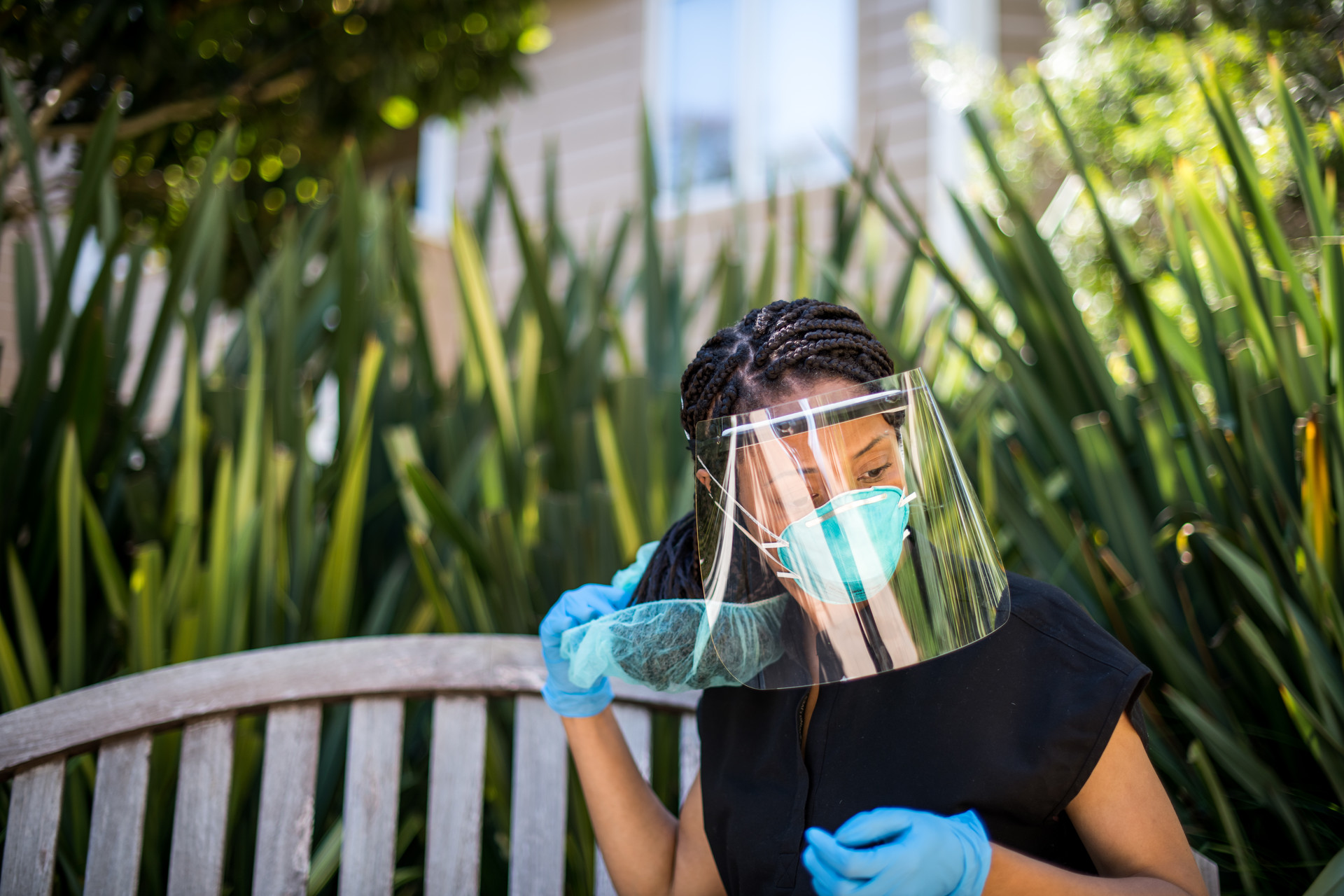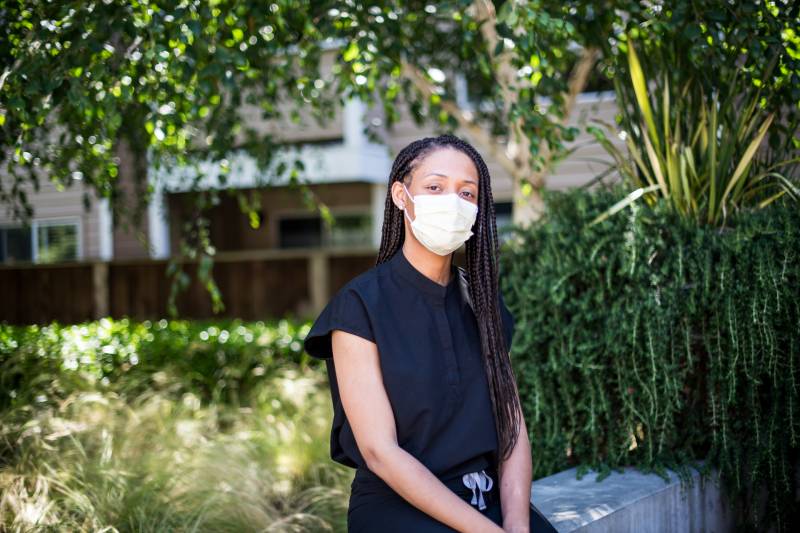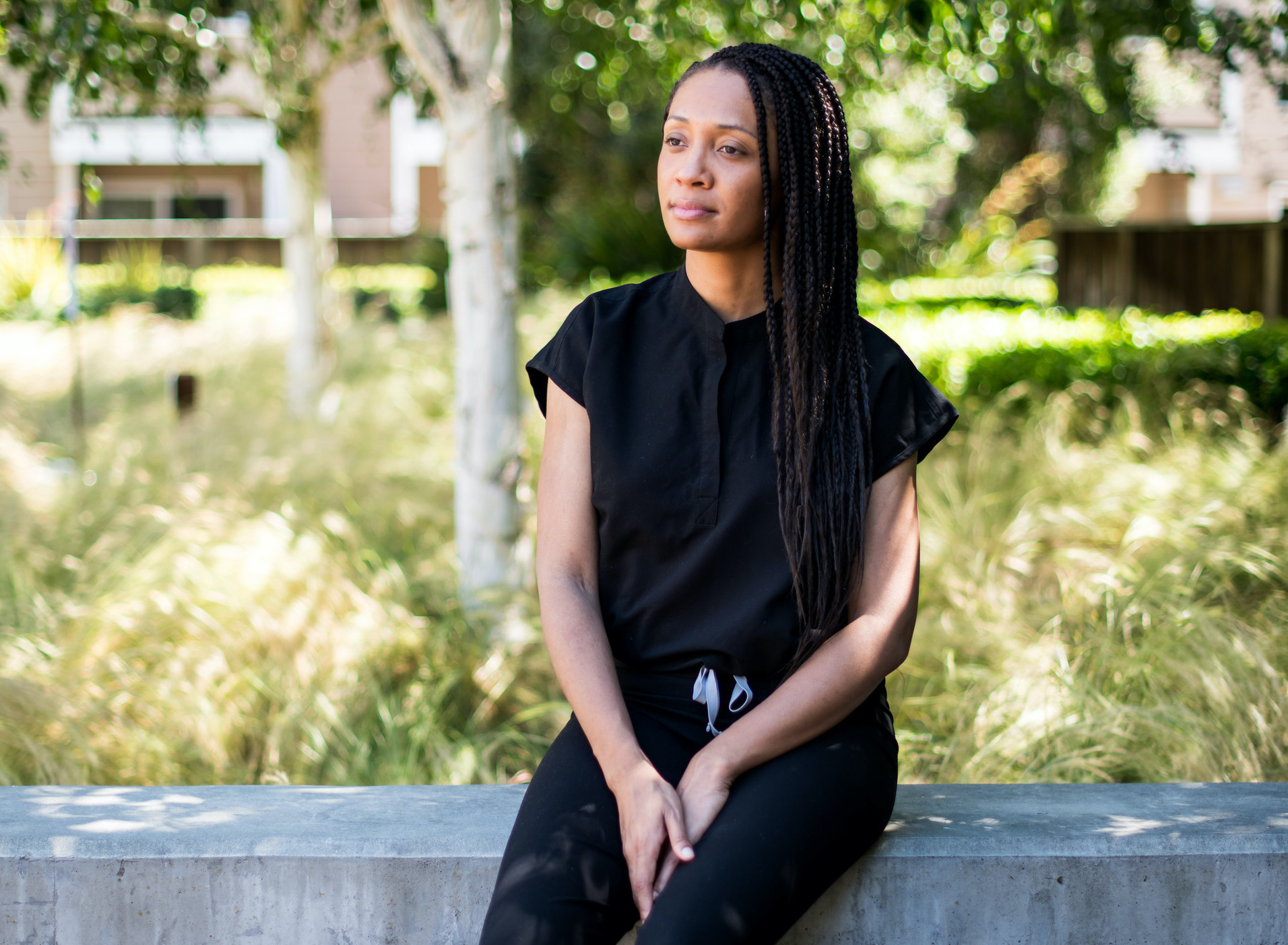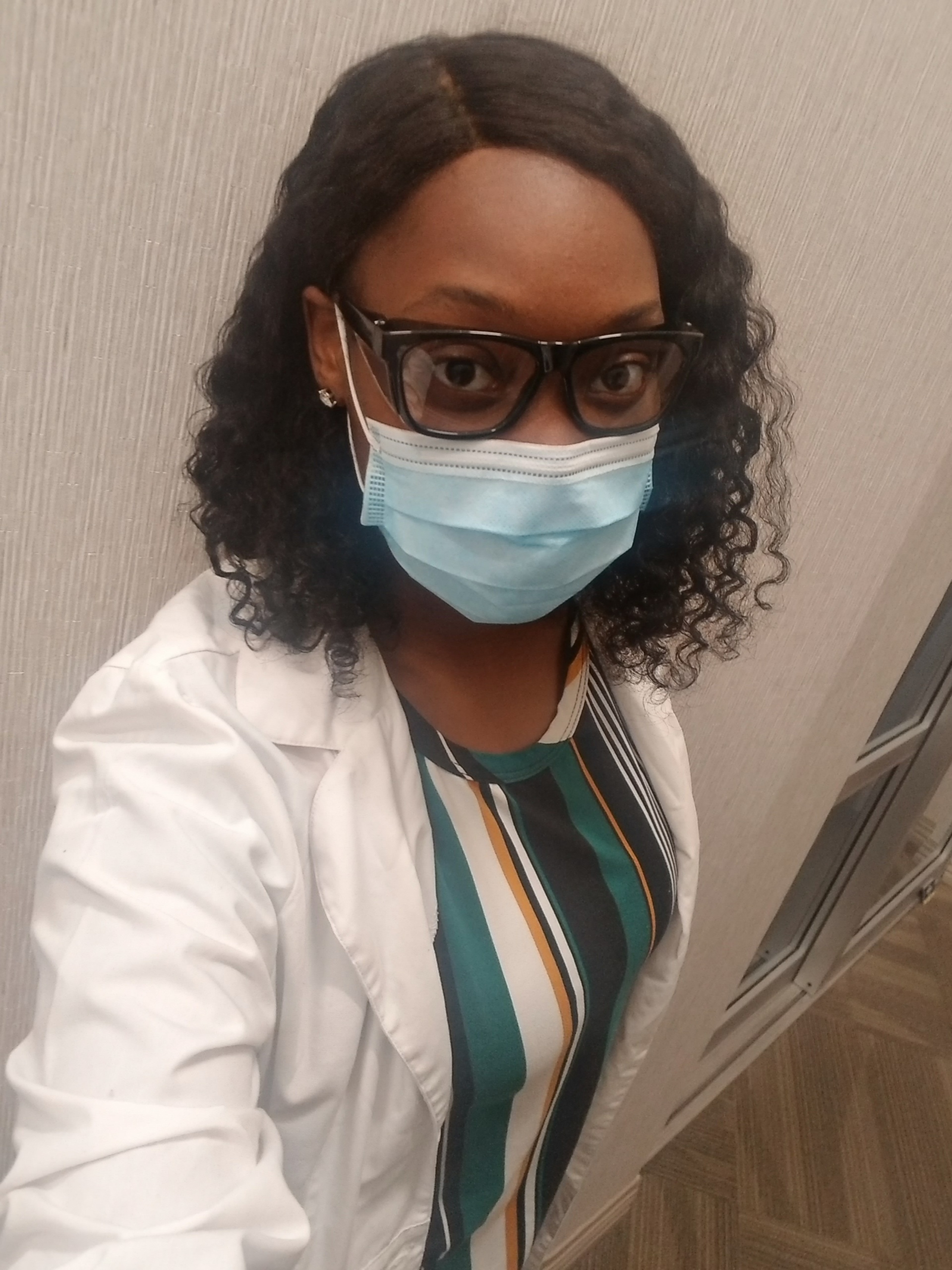Dr. Tiffany Chioma Anaebere doesn’t remember where she was when she heard about George Floyd’s death.
She could’ve been at her home in Emeryville, where she lives with her fiance. Or in the car, during one of her many commutes between Stockton and Modesto, where she works in two different hospitals as an emergency medicine physician on the frontlines of the coronavirus pandemic.
All she knows is that, at first, she avoided watching the video.
“I refused to. Like, I cannot see anything right now. And I’m normally the person that’s like, ‘Girl, did you see this video?’” she said. “I was like ‘No, no, no, no, no, I’m not watching anything.’”
But eventually, days after the story of Floyd’s death had permeated the national consciousness and tens of thousands took to the streets to demand justice, Chioma Anaebere finally sat down and watched it.
“I remember watching it and just being like, ‘OK, well, I am now debilitatingly depressed,’” she said. “I was already teetering on the edge. And… it was over after that.”

‘Depression, Anxiety, Insomnia, Distress’
Across the United States, and the world, health care workers are experiencing high levels of anxiety and stress due to the overwhelming workload of the COVID-19 pandemic. A March study of over 1,200 health care workers in China found that a large proportion experienced symptoms of “depression, anxiety, insomnia and distress.”
And those feelings of stress and anxiety can be compounded for Black health care workers, who make up more than 11% of these types of workers in the United States.
Along with reports showing that the coronavirus disproportionately impacts Black, Latino and Indigenous people, workers also leave their long, grueling shifts only to experience racism in many aspects of their daily life — including coming home to news reports and videos of violence.



